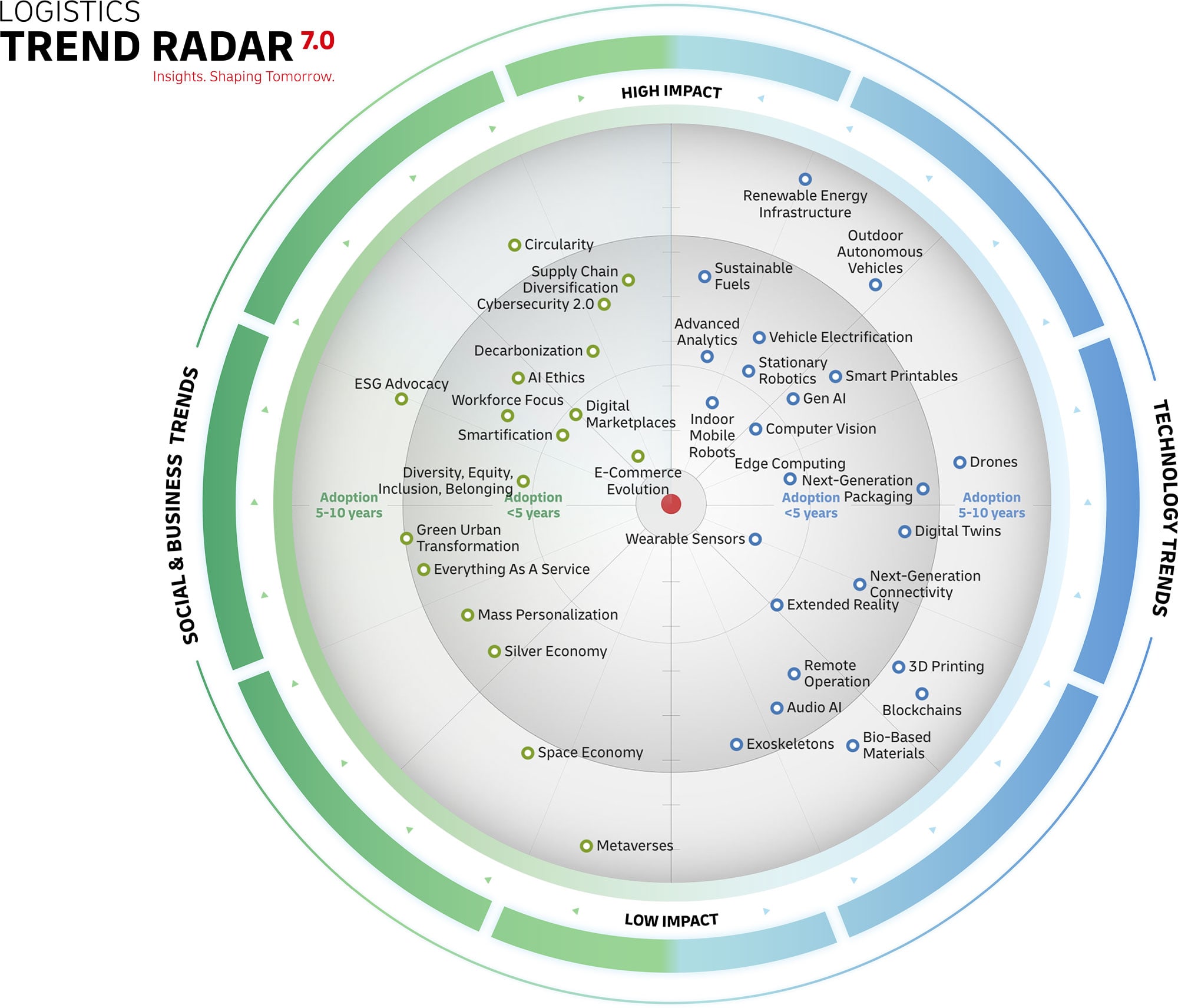The trend of Artificial Intelligence Ethics (AI Ethics) refers to the increasing focus on the ethical considerations and implications of AI technologies and ensuring their responsible development and deployment. Within this trend we also explore legislative developments of AI platforms, and the implications of data safety and algorithm security.
AI ethics is an emerging field concerned with ensuring the responsible development, deployment, and use of AI technologies. Its development accelerated in response to growing public awareness of AI's ethical implications, fueled by high-profile incidents, debates around democratizing it, and developments in regulatory frameworks to address issues such as bias, privacy, explainability, and transparency in AI systems.
Topics to be addressed include explainability, trustworthiness, transparency, robustness, and interpretability. The trend plays a critical role in the logistics industry, especially around these topics, as the number of AI applications increases within logistics and the supply chain. In particular, data privacy concerns must be addressed and ethical use of AI platforms must be ensured.
As the topic of AI ethics will impact most industries, this in turn will have significant impact on the logistics industry.
With increasing reliance on AI-powered systems for managing logistics operations, there’s a growing need to address concerns regarding the privacy and security of sensitive data. AI ethics standards will emphasize the importance of robust data protection measures to safeguard customer information and proprietary data.
Company compliance regulations for employees have existed for decades. These must, however, be amended to also address compliant use of company data when AI is integrated with collaboration tools and with company portals. Here at DHL, we recognize company compliance regulations must align with national laws. This opens a new domain in the world of compliance and legal clauses/contractual obligations for employees.













